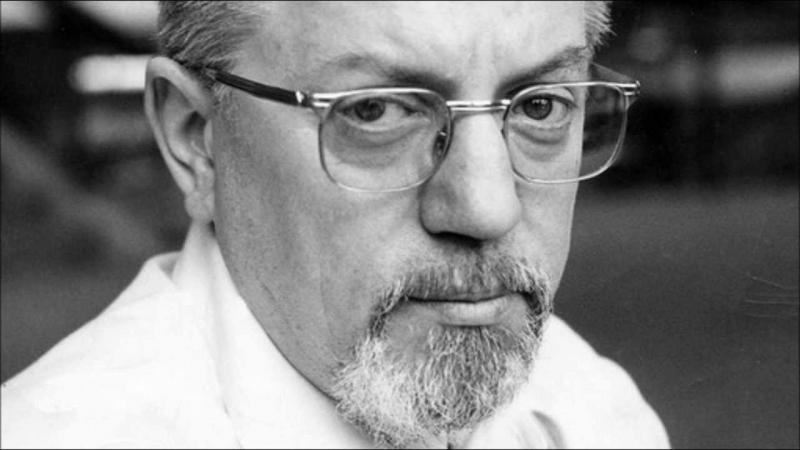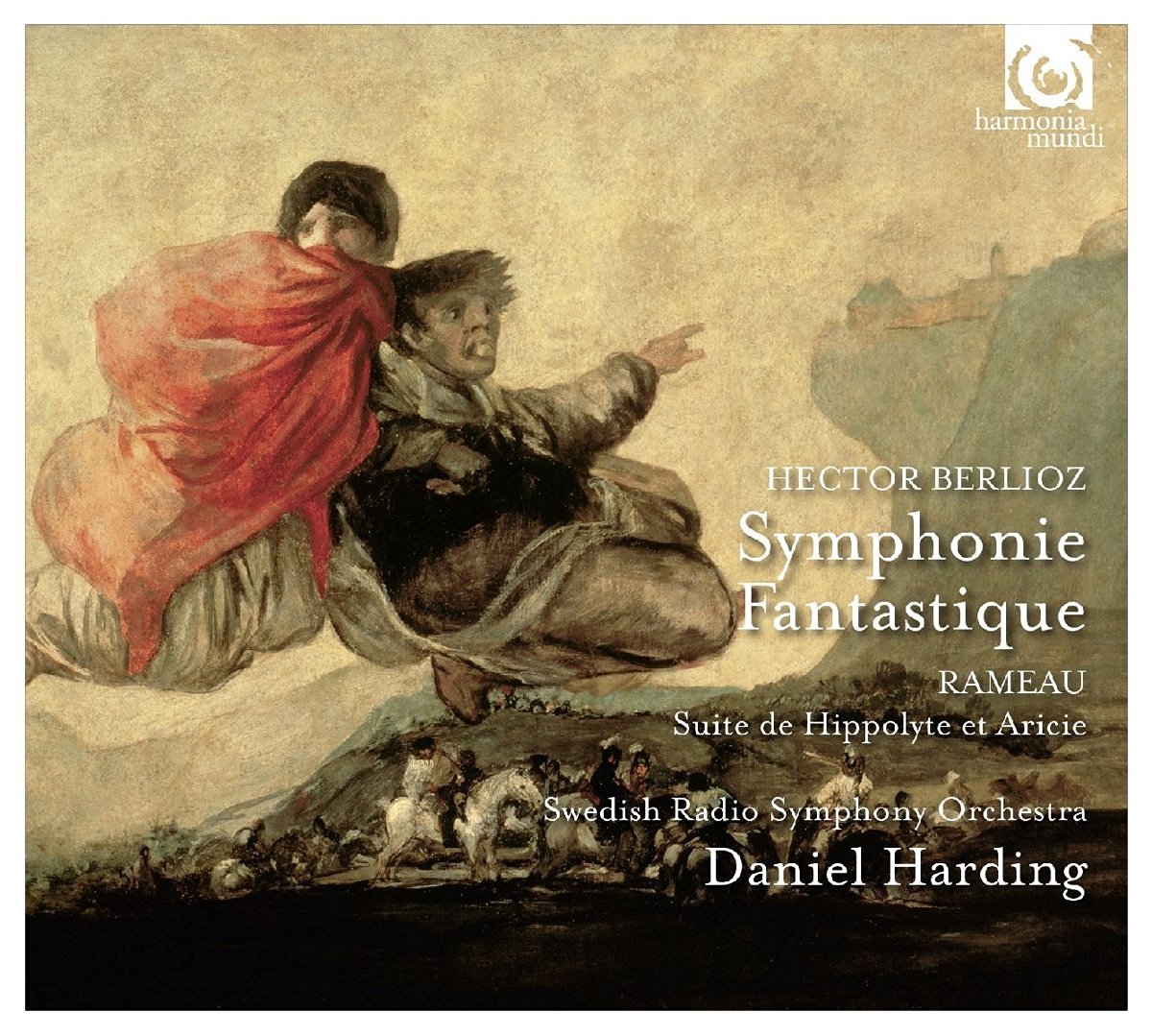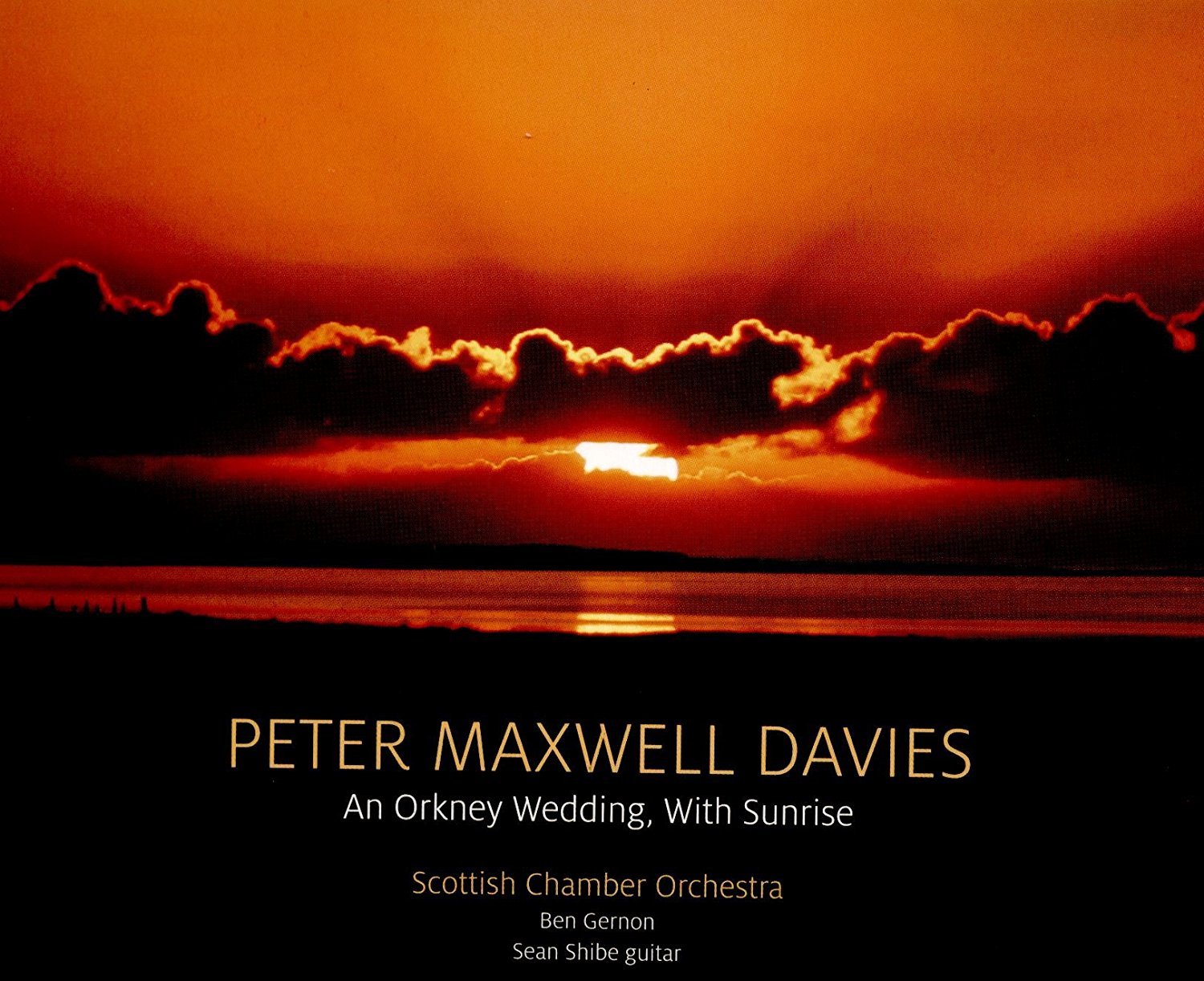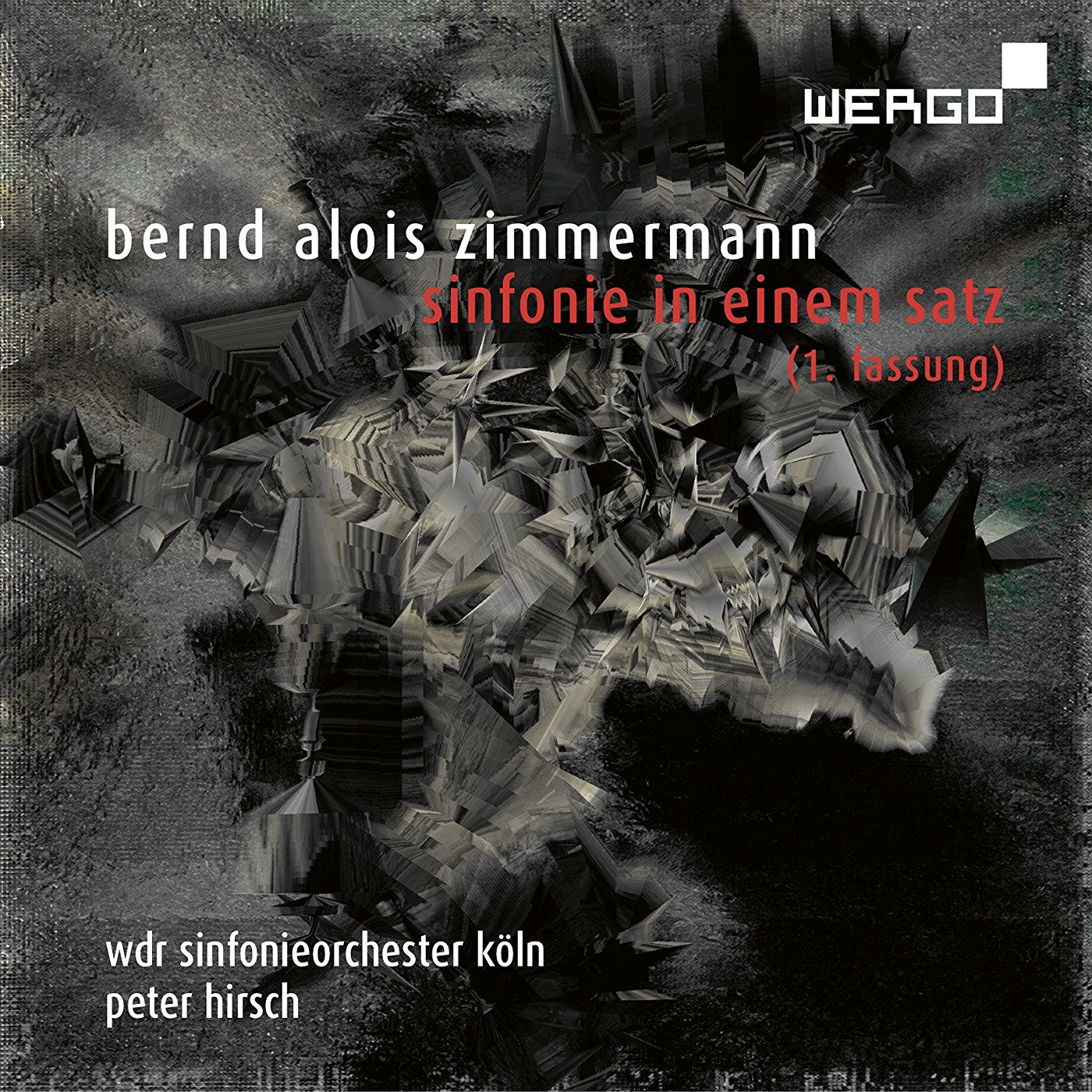Classical CDs Weekly: Berlioz, Maxwell Davies, Rameau, Zimmermann | reviews, news & interviews
Classical CDs Weekly: Berlioz, Maxwell Davies, Rameau, Zimmermann
Classical CDs Weekly: Berlioz, Maxwell Davies, Rameau, Zimmermann
French orchestral fireworks, a fine tribute to a much-loved British composer and some ear-splitting sounds from a German maverick

 Berlioz: Symphonie Fantastique, Rameau: Suite de Hippolyte et Aricie Swedish Radio Symphony Orchestra/Daniel Harding (Harmonia Mundi)
Berlioz: Symphonie Fantastique, Rameau: Suite de Hippolyte et Aricie Swedish Radio Symphony Orchestra/Daniel Harding (Harmonia Mundi)
This is my new favourite Symphonie Fantastique on modern instruments, and it should be yours too. Daniel Harding doesn’t smooth over the music’s rougher edges. Bass trombone pedals blast out with refreshing inhibition, and the ball scene’s four harps are especially telling. Everything sounds superb (sample the church bell in the last movement), and Harding knits everything together with an impressive sureness of intent. A glance at the track timings shows that this reading is on the swift side, though it never feels hurried. “Reveries – Passions” opens superbly, the Swedish Radio Symphony Orchestra alert to every tempo fluctuation. Woodwind and horn solos are delectable, the movement’s fast main section brilliantly incisive. Harding’s offstage oboe in the “Scène aux champs” is ideally distant, the timpani kicking up a real storm at the close. It gets even better; the “Marche au Supplice” mingles jauntiness with real dread and Harding’s “Songe d'une nuit du sabbat” benefits from incisive brass and brilliant string playing, the ponticello and col legno effects suitably prominent.
It’s preceded by music from another supreme French orchestral technician. Nine instrumental numbers from Rameau’s opera Hippolyte et Aricie are dispatched with a deftness which defies belief; you can’t quite believe that you’re hearing a modern orchestra. Bassoons and piccolo aquit themselves beautifully, Harding giving the dotted rhythms plenty of bounce. Enormous fun.
 Maxwell Davies: An Orkney Wedding, With Sunrise Scottish Chamber Orchestra/Ben Gernon, with Sean Shibe (guitar) (Linn)
Maxwell Davies: An Orkney Wedding, With Sunrise Scottish Chamber Orchestra/Ben Gernon, with Sean Shibe (guitar) (Linn)
Refreshing to learn that Peter Maxwell Davies’s An Orkney Wedding, with Sunrise was actually commissioned by John Williams and the Boston Pops Orchestra. Williams was already a fan, having attended the premiere of Maxwell Davies’ Symphony No. 1 whilst in London recording the score for Superman. Don’t dismiss it as musical fluff – it packs an emotional, uplifting punch, and this performance is a belter, Robert Jordan’s bagpipes overwhelming in the final minutes. This is a lovely disc: recorded in 2015, it serves both as an eloquent tribute and an engaging introduction to a much-loved composer. Farewell to Stromness is the other well-known work here, heard in an idiomatic transcription for guitar. Guitarist Sean Shibe also plays Hill Runes, an enigmatic, dark five-movement work inspired by a George Mackay Brown poem.
Two late orchestral pieces complete the CD. Last Door of Light is a powerful meditation on climate change and its effects, a study in “individual and communal vulnerability” where the folksy opening melody is ultimately meaningless and the promised peroration never quite arrives. The overture Ebb of Winter was one of the composer’s final works, “a reaction to the Orkney climate and influenced by Orkney folk music”. Predictably it’s a somewhat chilly work, the lucid brilliance of the orchestral writing never quite compensating for the prevailing coolness. It was composed for the Scottish Chamber Orchestra, whose flawless, fearless playing under Ben Gernon is a consistent pleasure. Maxwell Davies novices could do worse than starting here.
 Zimmermann: Sinfonie in einem Satz WDR Sinfonieorchester Köln/Peter Hirsch (Wergo)
Zimmermann: Sinfonie in einem Satz WDR Sinfonieorchester Köln/Peter Hirsch (Wergo)
Bernd Alois Zimmerman’s very name still strikes fear into the hearts of nervous concertgoers. His bleak opera Die Soldaten received an ENO outing several decades ago, and a bluesy trumpet concerto receives occasional performances. The first version of Zimmerman’s Symphony in One Movement was premiered, unsuccessfully, in 1951. It was extensively revised, the rougher edges smoothed over and the orchestration simplified – though conductor Peter Hirsch makes a persuasive case for the original’s boldness in his sleeve notes. It’s an extraordinary work, a 20-minute rhapsody containing music of delicate beauty and sheer naked terror. Most striking are the parts for obbligato organ and piano – Hirsch comparing the former’s first entry to “the crash of a meteorite”. Zimmermann bravely justified the symphony’s pessimism, arguing that it wasn’t his fault that he was composing in the aftermath of “an apocalyptic storm”. And it isn’t depressing music – I was left feeling shaken, stirred but invigorated.
The Concerto for String Orchestra was composed in the 1940s, a reworking of an an earlier string trio. Zimmermann’s three movements last barely twelve minutes, but it’s a rewarding, accessible work. Disquieting, yes, but intensely lyrical in places, with a heartbreaking slow movement and an exciting, motoric finale. If Zimmermann possessed a lighter side, it’s better displayed in the two ballet suites which fill the rest of the disc. Giostra Genovese and Musique pour les soupers du Roi Ubu contain deliciously unhinged music. The former reworks 16th and 17th century folk dances. Stravinsky’s Pulcinella must have been a model, the lute and guitar writing also suggesting Agon. Zimmermann flips between pious respect and cheeky parody. We segue from a subdued pavane by Gibbons to a crazed assault on William Byrd. The final movement is hysterical. Roi Ubu is more extreme musically but no less entertaining, a miscellany of famous quotations superimposed on yet more archaic dance movements.
Hirsch’s WDR Sinfonieorchester Köln revel in the craziness. Ear-tickling details emerge again and again – the cowbell and guiro in the second movement are especially telling, before Zimmermann throws in a few seconds of Fifties jazz noodling. There’s a tiny Berceuse which may induce tears of joy. And what a close: a chord nicked from Stockhausen hammered out 631 times, while The Ride of the Valkyries and the March to the Scaffold battle it out over the top. The title, translated, is “Brain-removing march”. My brain struggled but remained in place, just. Stunning, terrifying stuff, superbly performed and recorded – if you buy just one disc of 20th century orchestral music this year, choose this one.
Explore topics
Share this article
The future of Arts Journalism
You can stop theartsdesk.com closing!
We urgently need financing to survive. Our fundraising drive has thus far raised £49,000 but we need to reach £100,000 or we will be forced to close. Please contribute here: https://gofund.me/c3f6033d
And if you can forward this information to anyone who might assist, we’d be grateful.

Subscribe to theartsdesk.com
Thank you for continuing to read our work on theartsdesk.com. For unlimited access to every article in its entirety, including our archive of more than 15,000 pieces, we're asking for £5 per month or £40 per year. We feel it's a very good deal, and hope you do too.
To take a subscription now simply click here.
And if you're looking for that extra gift for a friend or family member, why not treat them to a theartsdesk.com gift subscription?
more Classical music
 BBC Proms: Akhmetshina, LPO, Gardner review - liquid luxuries
First-class service on an ocean-going programme
BBC Proms: Akhmetshina, LPO, Gardner review - liquid luxuries
First-class service on an ocean-going programme
 Budapest Festival Orchestra, Iván Fischer, Edinburgh International Festival 2025 review - mania and menuets
The Hungarians bring dance music to Edinburgh, but Fischer’s pastiche falls flat
Budapest Festival Orchestra, Iván Fischer, Edinburgh International Festival 2025 review - mania and menuets
The Hungarians bring dance music to Edinburgh, but Fischer’s pastiche falls flat
 Classical CDs: Hamlet, harps and haiku
Epic romantic symphonies, unaccompanied choral music and a bold string quartet's response to rising sea levels
Classical CDs: Hamlet, harps and haiku
Epic romantic symphonies, unaccompanied choral music and a bold string quartet's response to rising sea levels
 Kolesnikov, Tsoy / Liu, NCPA Orchestra, Chung, Edinburgh International Festival 2025 review - transfigured playing and heavenly desire
Three star pianists work wonders, and an orchestra dazzles, at least on the surface
Kolesnikov, Tsoy / Liu, NCPA Orchestra, Chung, Edinburgh International Festival 2025 review - transfigured playing and heavenly desire
Three star pianists work wonders, and an orchestra dazzles, at least on the surface
 BBC Proms: Láng, Cser, Budapest Festival Orchestra, Iván Fischer review - idiomatic inflections
Bartók’s heart of darkness follows Beethoven’s dancing light
BBC Proms: Láng, Cser, Budapest Festival Orchestra, Iván Fischer review - idiomatic inflections
Bartók’s heart of darkness follows Beethoven’s dancing light
 Weilerstein, NYO2, Payare / Dueñas, Malofeev, Edinburgh International Festival 2025 review - youthful energy and emotional intensity
Big-boned Prokofiev and Shostakovich, cacophonous López, plus intense violin/piano duo
Weilerstein, NYO2, Payare / Dueñas, Malofeev, Edinburgh International Festival 2025 review - youthful energy and emotional intensity
Big-boned Prokofiev and Shostakovich, cacophonous López, plus intense violin/piano duo
 theartsdesk at the Three Choirs Festival - Passion in the Cathedral
Cantatas new and old, slate quarries to Calvary
theartsdesk at the Three Choirs Festival - Passion in the Cathedral
Cantatas new and old, slate quarries to Calvary
 BBC Proms: Estonian Philharmonic Chamber Choir, Kaljuste review - Arvo Pärt 90th birthday tribute
Stillness and contemplation characterise this well sung late-nighter
BBC Proms: Estonian Philharmonic Chamber Choir, Kaljuste review - Arvo Pärt 90th birthday tribute
Stillness and contemplation characterise this well sung late-nighter
 BBC Proms: Kholodenko, BBCNOW, Otaka review - exhilarating Lutosławski, underwhelming Rachmaninov
Polish composers to the fore in veteran conductor’s farewell
BBC Proms: Kholodenko, BBCNOW, Otaka review - exhilarating Lutosławski, underwhelming Rachmaninov
Polish composers to the fore in veteran conductor’s farewell
 theartsdesk at the Pärnu Music Festival 2025 - Arvo Pärt at 90 flanked by lightness and warmth
Paavo Järvi’s Estonian Festival Orchestra still casts its familiar spell
theartsdesk at the Pärnu Music Festival 2025 - Arvo Pärt at 90 flanked by lightness and warmth
Paavo Järvi’s Estonian Festival Orchestra still casts its familiar spell
 BBC Proms: Batsashvili, BBC Scottish Symphony Orchestra, Ryan Wigglesworth review - grief and glory
Subdued Mozart yields to blazing Bruckner
BBC Proms: Batsashvili, BBC Scottish Symphony Orchestra, Ryan Wigglesworth review - grief and glory
Subdued Mozart yields to blazing Bruckner

Add comment